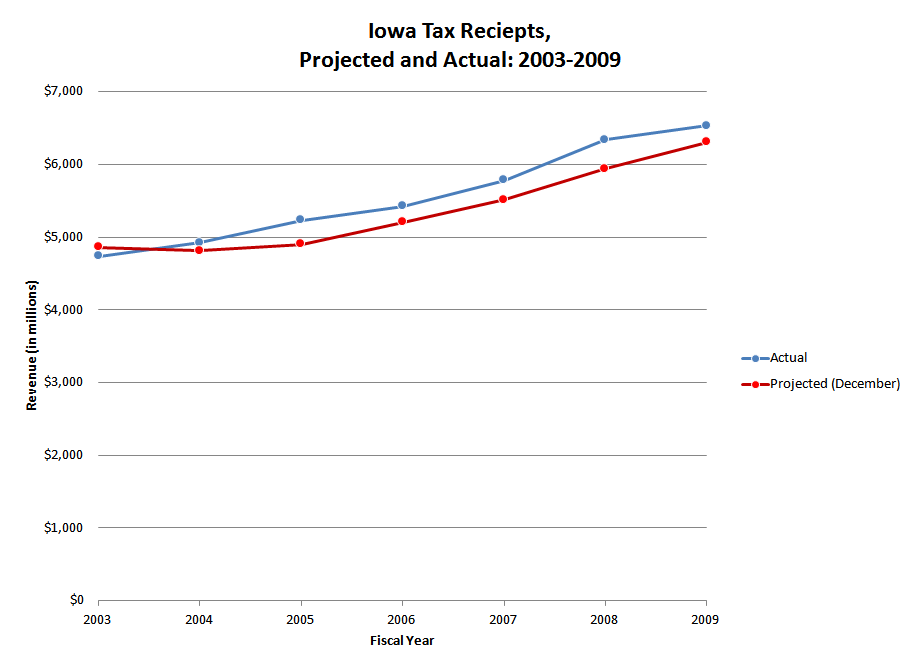A lot of people have been paying attention to the Revenue Estimating Conference (REC) the last two years. By law, REC meets three times a year–March, October, and December–to forecast tax revenues for the next fiscal year (between July and June). The legislature and governor use the estimates to determine expenditures.
It’s a big deal. If REC says revenues will be high, the legislature will probably spend a lot. It hurts when the REC, say, overestimates. We’re then left with a deficit we have to implement drastic cuts.
Below is a graph plotting nominal actual versus nominal projected net revenue between 2003 and 2009. The projections were taken from REC’s December* meeting the prior year. The mean absolute percent error between forecast and actual net revenue was a modest 3.9%.
[caption id=”attachment_454” align=”aligncenter” width=”600” caption=”State net revenue in millions”] [/caption]
[/caption]
The current state budget is slightly over $6 billion, so each percent error is roughly $60 million. REC’s current estimates of $5.4 billion in revenues will likely error by $210.6 million.
Tax receipt forecasts were slightly more accurate, ff by an average of 3.7%. That means the projections fall apart on other receipts (e.g., judicial revenue) or fund transfers (e.g., lottery payments). Those revenues are probably more cyclical (e.g., liquor tax revenues increase when the economy declines) that’s harder to predict.
[caption id=”attachment_455” align=”aligncenter” width=”600” caption=”Tax receipts in millions”] [/caption]
[/caption]
Nevertheless, REC’s margin is quite large. The problem seems to be two-fold. First, REC underestimated revenues between 2004 and 2008 which is understandable since they use conservative estimates.
Second, REC doesn’t pivot with the economy. As Iowa’s economy began to sank REC went from underestimating revenues to overestimating it. A similar pattern is apparent from 2003 to 2004 as Iowa’s economy recovered. REC, who overestimated revenues in 2003, underestimated them through 2008.
The Legislative Services Agency (LSA) has a done a study before on the accuracy of REC in the late 80s/early 90s. The data seems to show show that REC overestimated revenues in 1988, but the methodology isn’t clear enough for me to be sure.
*Prior to 2002 they had a different meeting schedule. I used the February projections since it was closest to the December meeting.
This post was updated after an error was discovered.